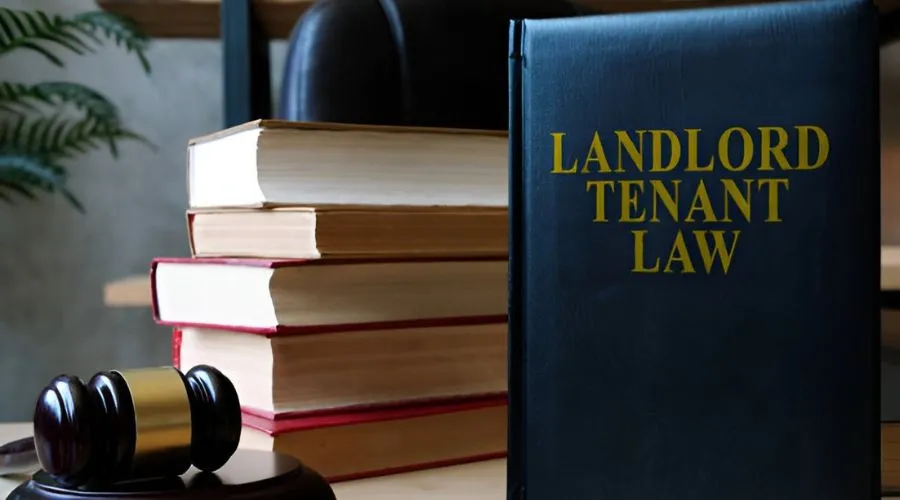As a landlord in Louisiana, you may wonder what questions you can legally ask the applicants. The answer lies in Louisiana tenant screening laws. They regulate allowable screening fees, background checks, and tenant rights. LeaserRunner’s article walks you through allowable tenant screening fees and criteria. It also covers tenant rights and practical tips for you to avoid legal issues.
Understanding Tenant Screening Laws in Louisiana
Louisiana tenant screening laws provide a clear framework for landlords and tenants. These rules align with federal and state-specific regulations. They cover legal requirements for landlords and tenant protections during the screening process.
Fair Credit Reporting Act (FCRA)
The Fair Credit Reporting Act (FCRA) plays a central role in how Illinois tenant screening laws are applied. These federal rules also affect tenant background screening practices, ensuring evaluations remain fair and consistent. This Act connects directly with rental application laws by setting clear standards for how landlords may use consumer reports during the screening process.
- Written consent: Landlords must obtain a signed authorization before pulling any credit or background report.
- Permissible purpose: Landlords may use reports only to evaluate rental applications.
- Adverse action notice: Landlords must provide applicants with a written notice when they deny or change terms based on the report's findings. The notice includes the credit bureau’s contact details and the applicant’s right to dispute the information.
HUD Fair Housing Guidance on Criminal Records
HUD guidance makes clear that landlords cannot impose blanket bans on applicants with criminal records. Under Louisiana background check rules, each decision must weigh the recency, severity, and relevance of the offense.
- The nature of the offense.
- How long ago it occurred.
- Whether the conviction impacts the safety of the property or other residents.
This balances landlord interests with HUD criminal background check requirements. These laws also protect tenants from unfair rejections.
Louisiana Equal Housing Opportunity Act
This Act mirrors Federal Fair Housing protections. It prohibits landlords from discriminating based on:
- Race, color, religion, sex, disability, familial status, or national origin.
- Source of income or other protected categories under Louisiana law.

Louisiana Civil Code-Ancillaries (§9:3258.1)
State law sets out detailed Louisiana rental application laws and requirements for primary residence leases:
- Fee disclosure: The application fee amount must be disclosed in writing before collection. Landlords must also state if credit, employment, criminal, or eviction records will be reviewed.
- Hardship statement: Applicants may submit up to 200 words explaining financial hardship from disasters such as COVID-19 or hurricanes.
- Electronic delivery: Notices may be delivered electronically if compliant with the R.S. 9:2601 et seq. Uniform Electronic Transactions Act (UETA).
- Applicability: Applies to residential leases, excluding owner-occupied buildings with four or fewer units.
- Legal immunity: Landlords and agents are immune from lawsuits for alleged violations of this section.
These rules form the core of Louisiana lease laws. They guide landlords in managing applications while staying compliant.
Allowable Tenant Screening Criteria in Louisiana
When assessing rental applications, landlords must comply with Louisiana tenant screening laws. The state does not cap fees or restrict the type of information that can be reviewed. However, landlords must provide written notice for applicants if they plan to check credit, income records, or eviction history. These steps form the foundation of a proper tenant screening process.
Credit & Rental History
Under Louisiana background check rules, landlords may assess both financial background and prior rental conduct. A credit report shows payment reliability, outstanding debts, or bankruptcies. Rental verification highlights past lease violations, late payments, or damages.
Together, these details show what landlords look for in a background check. They also help identify tenants likely to pay on time and care for the property.
Employment & Income Verification
Landlords may also confirm job status and income levels. This ensures the applicant can meet rent obligations. Verification often includes:
- Recent pay stubs or W-2 forms
- Employment letters or contracts
- Bank statements or tax filings
By applying an income-to-rent ratio, landlords use clear standards to measure tenant stability. This step, sometimes called tenant income verification, reduces financial risk and ensures consistent payment.
Criminal & Eviction Records
Another allowable criterion in a rental house background check is the review of criminal and eviction records. Landlords may look for convictions, housing-related offenses, or prior judgments. Reviewing eviction history helps predict possible risks such as nonpayment or repeated lease violations.
To stay compliant, landlords must use the same tenant screening checklist for every applicant and secure signed consent before running any report.
In summary, Louisiana tenant screening laws let landlords review credit, rental history, income, and background reports when deciding on tenants. Unlike states with a Portable Tenant Screening Report (PTSR), Louisiana does not require landlords to accept tenant-supplied reports or waive fees. Landlords may review records provided by applicants, but they do not have to lower or refund screening costs.

How Much Landlords Can Charge Tenant Screening Fees
In Louisiana, there is no legal limit on tenant screening fees. Under Louisiana tenant screening laws, landlords may decide the amount. Application fees are non-refundable, while security deposits are refundable based on how tenants maintain the property. The fee must be paid when the application is submitted, while deposits are collected only after a lease is signed. To comply with rental requirements in Louisiana, landlords must keep the process consistent and avoid discrimination.
Disclose Before You Charge (R.S. 9:3258.1)
Louisiana law requires landlords to give written notice before collecting an application fee. The notice must include:
- The exact amount of the fee. Many renters ask, “How much is a background check for an apartment?” In Louisiana, the answer depends on each landlord, as no cap exists.
- Whether credit scores, job history, criminal records, or tenant background checks in Louisiana will be reviewed.
- A tenant’s right to provide a 200-word hardship statement explaining financial issues caused by disasters such as COVID-19 or hurricanes.
This notice can be delivered electronically if it meets the Louisiana Uniform Electronic Transactions Act. The rule applies to most housing, except owner-occupied buildings with four or fewer units.
Set a Reasonable and Documented Fee
While the law sets no cap, landlords should keep fees reasonable and transparent. The amount should reflect the actual cost of reports and administrative work. Common expenses include a background check for renters in Louisiana, income verification, and processing. Always:
- Put the fee in writing.
- Keep receipts and records.
- Get the applicant’s signed consent for screening, as required under the FCRA.
Applying the same fee and rules to every applicant helps avoid disputes. It also ensures compliance with Louisiana rental laws and security deposit rules. Using reliable tenant screening services in Louisiana supports this process. They help landlords follow fair housing standards while protecting their investments.
A Practical Guide to the Louisiana Tenant Screening Process
Navigating Louisiana tenant screening laws requires a step-by-step approach. By breaking the process into clear stages, landlords can stay compliant, protect their investments, and secure reliable tenants. The following five steps outline how to move from receiving applications to making a final decision.
Step 1: Collect Applications and Screening Fees
Under the tenant screening report, landlords must give applicants a written notice before accepting any application fee. This notice must include:
- The exact fee amount
- Whether credit, job history, criminal records, or eviction history will be checked.
- A statement that applicants may add a 200-word hardship note related to disasters such as hurricanes or COVID-19.
Fees are non-refundable and are separate from security deposits. This rule applies to rental units used as a primary home, except for owner-occupied buildings with four or fewer units. For tenants, meeting the requirements to rent a house in Louisiana starts with completing this step correctly.
Step 2: Process Applications
Once you receive applications, review them with a written screening checklist. This ensures every applicant is judged by the same standards and avoids discrimination claims. Examples of screening criteria include:
- Minimum credit score
- Pet restrictions
- Income-to-rent ratio
- Past evictions or criminal history
Louisiana law sets no cap on application fees, but fair housing rules and FCRA guidelines still apply.
Step 3: Run a Louisiana Tenant Screening Report
You cannot access consumer data without signed consent from the applicant. Always include a signature line on your form.
Louisiana landlords may choose to accept a PTSR. If you decide to allow it, direct applicants to portable tenant screening services for tenants screening services for tenants. LeaseRunner provides a compliant option that meets state requirements.
Step 4: Evaluate & Decide
Review each file against your criteria. Consider the hardship statement, if provided, along with verified income and housing history. Some landlords also request income verification and cash flow report to confirm the applicant’s ability to meet rent payments. Apply the same standards to every applicant to stay compliant with Louisiana tenant screening laws.
Step 5: Issue Written Approval or Adverse Action Notice
If approved, send written confirmation and collect the deposit at lease signing. If denied, issue a proper adverse action notice explaining the decision.
Keep copies of:
- The applicant’s consent form
Screening reports - Notices and communication records
This documentation protects landlords under FCRA and ensures full compliance with Louisiana tenant screening laws.

Tenant Rights During the Tenant Screening Process
Applicants in Louisiana are protected by both Louisiana tenant screening laws and federal regulations like the Fair Credit Reporting Act (FCRA). These rules focus on transparency, privacy, and non-discrimination. Below are the core rights every tenant should understand before and after applying for a rental.
Tenant Privacy Rights & Access to Screening Report
Under tenant screening laws, landlords must provide written notice before collecting any application fee. This notice must state:
- The amount of the application fee.
- Whether factors such as credit history, criminal records, employment history, or eviction reports will be reviewed.
- Applicants may include a 200-word hardship statement explaining financial struggles tied to emergencies.
If a consumer report is used, the FCRA requires an adverse action notice. Landlords must give this notice when an application is denied or when less favorable terms are offered. It must include:
- The name and contact information of the screening company.
- Your right to a free copy of the report within 60 days.
- Your right to dispute any errors.
Providing this disclosure within a proper notice period ensures compliance and protects the applicant’s right to transparency.
Dispute Against Inaccurate Information
Applicants also have the right to challenge false or outdated records. If you believe your screening report has errors, you can file a dispute with the consumer reporting agency. The agency must:
- Investigate within 30 days (or 45 if more information is needed).
- Correct or remove unverifiable details.
- Provide written results of the investigation.
This dispute process ensures fairness and accuracy under both the FCRA and Louisiana tenant screening laws.
Filing a Fair Housing Complaint (State/AG/HUD)
Tenant screening must comply with fair housing rules. Landlords cannot reject applicants based on race, religion, disability, sex, national origin, or familial status. If you suspect discrimination, you can:
- State level: File a complaint with the Louisiana Commission on Human Rights (LCHR).
- Attorney General: Report discrimination through the Louisiana Department of Justice.
- Federal level: Submit a claim to the U.S. Department of Housing and Urban Development (HUD) online.
These complaint channels work together to enforce tenant screening laws and broader fair housing protections.
Best Practices for Louisiana Landlords to Stay Compliant
Landlords in Louisiana must follow strict rules when handling rental applications. The Louisiana tenant screening laws set clear requirements on application fees, notice, and tenant rights. Failing to comply can lead to disputes or loss of trust. The following best practices will help landlords stay within state law and federal standards.
1. Provide Clear Disclosure of Application Fees
Before accepting any fee, landlords must give applicants written notice that includes:
- The exact amount of the application fee.
- Whether credit history, employment, criminal background, or eviction records will be reviewed.
- Applicants have the right to submit a short statement of up to 200 words. It may explain financial hardship from disasters like hurricanes or COVID-19.
This disclosure keeps landlords compliant with RS 9:3258.1(A).
2. Follow the Louisiana Uniform Electronic Transactions Act
Landlords may send the required notices electronically, but only if the method meets the Louisiana Uniform Electronic Transactions Act. This ensures all digital records are valid under state law.
3. Respect Tenant Protections and Exemptions
The statute applies to all rental housing except owner-occupied buildings with four or fewer units. Knowing this exemption prevents unnecessary disputes.
4. Obtain Written Consent for Background Checks
No landlord can run a credit or criminal check without the applicant’s signed authorization. Adding a signature line for consent on every application form avoids mistakes. Services like LeaseRunner provide compliant forms and secure processing.
5. Differentiate Application Fees and Security Deposits
- Application fees: Not capped by law, non-refundable, due at the time of application.
- Security deposits: No legal maximum, but refundable based on the tenant’s care of the property.
Being transparent about this distinction protects landlords from complaints about unfair charges.
6. Understand Immunity Limits
The law grants landlords and their agents immunity from private lawsuits for alleged violations of RS 9:3258.1(D). While this protection exists, landlords should still act in good faith to avoid regulatory or reputational risks.

Conclusions
In Louisiana’s competitive rental market, clarity and compliance are essential. By following Louisiana tenant screening laws, landlords protect themselves from disputes while renters gain transparency and fairness. From fee disclosures to background check rules, every step shapes a smoother leasing process.
Whether you are applying for a home or managing properties, it is important to check tenant screening report details carefully. Understanding these laws helps avoid errors, build trust, and create better rental relationships. Stay informed, and make your next lease a confident step forward.
FAQs
1. What background checks can landlords run in Louisiana?
Under Louisiana tenant screening laws, landlords may review an applicant’s credit history, criminal record, rental history, and eviction filings. However, they must first obtain written consent from the applicant, usually included on the rental application.
Federal Fair Housing laws still apply, meaning landlords cannot use screening results to discriminate against protected classes. Using a service like LeaseRunner ensures compliance with both state and federal screening rules.
2. What are the rent control laws in Louisiana?
Louisiana does not have any statewide rent control laws. Landlords may set rental rates freely, and there are no statutory caps on rent increases. Local cities and parishes are also barred from imposing rent control ordinances.
Instead, the state relies on lease agreements to govern rent changes. Tenants remain protected by notice requirements, security deposit rules, and anti-discrimination statutes. Compared to states like California or New York, Louisiana provides far fewer rent controls.
3. How much can a landlord charge for an application fee in Louisiana?
Louisiana law does not limit the amount of an application fee. Landlords can set any fee they choose, and the fee is non-refundable, even if the applicant is denied. However, before collecting payment, landlords must provide written notice stating the fee amount and whether background factors, such as credit or eviction history, will be reviewed. This requirement is found in RS 9:3258.1, which governs residential lease applications statewide.



